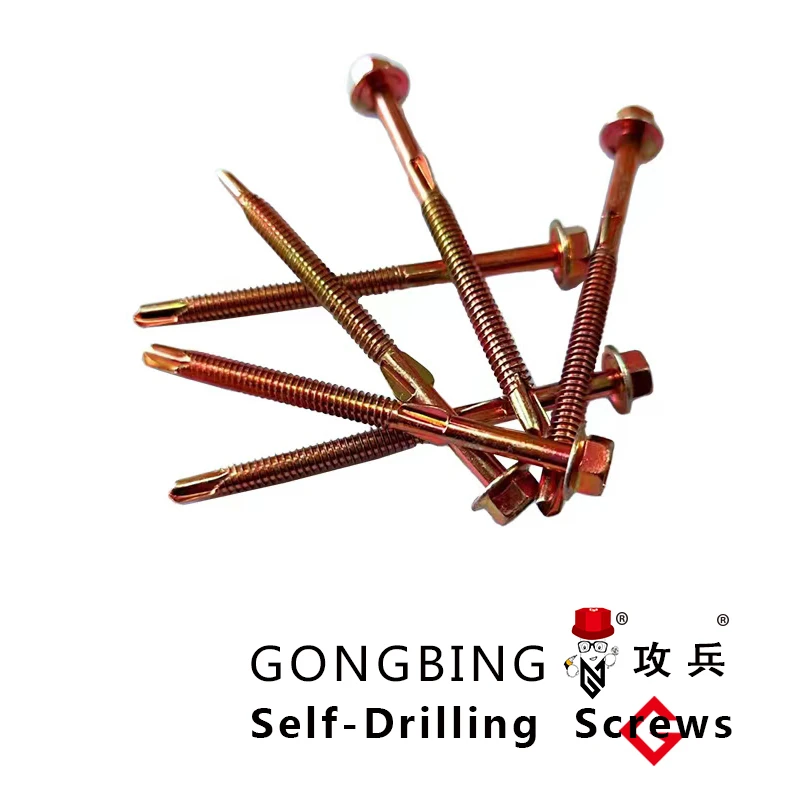self tapping screw with hex head
Understanding Self-Tapping Screws with Hex Heads A Comprehensive Guide
Self-tapping screws are a staple in the world of fasteners, valued for their ability to create their own threads when driven into materials. Among the various types of self-tapping screws, those equipped with a hex head have gained considerable popularity and utility across a range of applications. This article delves into the features, benefits, applications, and considerations associated with self-tapping screws with hex heads, providing a well-rounded understanding of this essential fastening solution.
What Are Self-Tapping Screws?
Self-tapping screws are designed with a sharp point that enables them to cut through the material they are being driven into, eliminating the need for pre-drilling holes. They are commonly made from materials such as steel or stainless steel, often having protective coatings to withstand corrosion and enhance durability. The unique design of these screws allows them to create a tight and secure fit in a variety of substrates, including metal, plastic, and wood.
The Hex Head Design
The hex head of self-tapping screws is one of their standout features. Unlike traditional slotted or Phillips heads, hex heads provide a greater surface area for tool engagement, allowing for increased torque during installation. This is particularly advantageous when working with tougher materials or in high-stress applications. The hexagonal shape fits neatly into a variety of standard wrenches and sockets, making it easier to apply the necessary force without slipping.
Advantages of Self-Tapping Screws with Hex Heads
1. Ease of Use One of the most significant advantages of self-tapping screws with hex heads is their ease of installation. They can be quickly driven into materials with minimal preparation, making them ideal for time-sensitive projects.
2. Secure Grip The hexagonal shape allows for a firm grip, reducing the chance of stripping the screw head during installation. This ensures that the screw remains securely fastened once installed.
3. Versatility These screws are available in various sizes and lengths, making them suitable for a wide range of applications, from light-duty tasks to heavy industrial use. They are effective in securing different materials and can be used in construction, automotive, and electronic applications.
self tapping screw with hex head

4. Cost-Effective Self-tapping screws typically reduce the need for additional fasteners, like anchors or plugs, which can lower overall material costs. Moreover, their quick installation can save on labor costs.
Applications of Self-Tapping Screws
Self-tapping screws with hex heads are widely used in numerous industries. In construction, they are often employed in metal framing and roofing projects, where their ability to securely fasten metal sheets or structures is paramount. In automotive applications, they are used to assemble components where strength and durability are essential.
Additionally, these screws are common in the manufacturing of appliances and furniture, providing reliable fastening for various assembly processes. Their adaptability makes them popular among DIY enthusiasts and professionals alike, especially in projects requiring a robust and stable assembly.
Considerations When Using Self-Tapping Screws
While self-tapping screws with hex heads offer many benefits, certain considerations should be noted for optimal use
1. Material Compatibility Always ensure that the self-tapping screw is compatible with the material being used. Different screws are designed for use with specific types of materials, and using the wrong screw can lead to issues such as breakage or inadequate fastening.
2. Drilling Depth It's crucial to avoid overdriving the screw, which can damage the material or strip the threads. Proper care should be taken to monitor the depth during installation.
3. Corrosion Resistance Depending on the application, consider using screws made from corrosion-resistant materials, especially in environments exposed to moisture or chemicals.
In conclusion, self-tapping screws with hex heads are a practical and efficient choice for numerous fastening applications. Their ease of use, strong grip, and versatility make them a valuable addition to any toolbox, whether for professional tradespeople or DIY enthusiasts. By understanding their features and applications, users can maximize the benefits of these effective fasteners in their projects.
-
Weatherproof Plastic Expansion Anchors for OutdoorNewsJun.06,2025
-
Sustainability in the Supply Chain: Eco-Friendly TEK Screws ProductionNewsJun.06,2025
-
Load-Bearing Capacity of External Insulation FixingsNewsJun.06,2025
-
Double Head Bolts: Enhancing Efficiency in Industrial MachineryNewsJun.06,2025
-
Corrosion Resistance in Chipboard Screws: Coatings for Wholesale DurabilityNewsJun.06,2025
-
Butterfly Toggle Bolts : Enhancing Structural ResilienceNewsJun.06,2025
